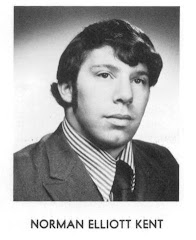
What Will the New President Do About Marijuana?
By Norm Kent
Christmas Week, 2008
“I inhaled frequently, that was the point.”
-Barack Obama, November 2006
He picked for Vice President one of the major architects of the Drug War.
He picked for Chief of Staff one of the chief opponents of medical marijuana.
He is talking about picking for the Drug Czar spot a conservative candidate who has been a congressional leader fighting drug reform.
He has promised to put an end to raids on medical dispensaries in California, but he has not said he will broadly support the Hinchey-Rohrbacher Amendment which would let states decide the issue.
He has moved from once supporting marijuana decriminalization to publishing comments that he cannot overuse ‘political capital’ on the issue.
He has now appointed for Attorney General a candidate who has a long history of opposing drug policy reforms and who has in court supported mandatory minimum sentencing and civil forfeiture.
Allen St. Pierre, the Executive Director of NORML, summed it up best about Mr. Obama’s appointments thus far: “So Far, Not So Good:” His thought-provoking article appears on the NORML.com website at its blog.
From summarizing why the selection of Joe Biden as Vice President caused him ‘digestive tumult’ to tracing Rahm Emanuel’s anti-drug policies for the past decade, the article captures a snapshot of what was routine politics as usual for the players soon to be in power.
When it comes to our 44th President, some of his positions on marijuana were once encouraging. But as Mr. Obama has moved towards the national limelight, there is a new found frustration for reformers. It seems the President to be is moving from the left to the middle. And as Loudon Wainwright once wrote in a popular song, the only things you see in the middle of the road are dead skunks and yellow lines. Still, I am not alarmed yet. It is way too early, and there is still room and reason for optimism.
Commencing your administration in the face of a national economic crisis at home while American soldiers are at war abroad can focus your priorities on other issues outside the need for weed. We have seen what happened to Bill Clinton when he tried, too early in his administration, to advance the cause of gay rights by banning discrimination against homosexuals in the military. He started a firestorm which burnt up valuable first months of his presidency.
We do know this though, and it is a challenging start. Rather decisively, on the official administration website, at www.change.gov, the following statement appears: President-elect Obama is not in favor of the legalization of marijuana.
What can we then expect of Mr. Obama once he becomes President?
I think there are many encouraging things.
First, in his past he has acknowledged the broad failures of the drug war, declaring in 2004 that it was an “utter failure” which needs to be rethought.
Second, as an African-American in an urban community, few people will be as sensitive as Mr. Obama to the exhaustive legal toll this drug war exacts on minority communities. The arrests come quicker, the prosecutions are more frequent, and the sentences are longer. Drug arrests have been tools to deny poor people driver’s licenses, scholarships and federal welfare benefits, causing innocuous conduct to endure catastrophic consequences for otherwise decent people.
Third, the President is ‘with it’. His telling comments to a group of students when asked whether he ‘inhaled’ marijuana were “Of course, I thought that was the whole purpose.”
Those remarks are a reflection of the candor and commitment of Mr. Obama to address the issue in a new light. He did not play a game of Clintonian holier-than-thou cover-up. With the same self-deprecating qualities that he shared with the nation when he called himself a ‘mutt,’ Mr. Obama implied in tone and substance that marijuana may not be as bad as we have been hearing from the government for too many decades.
Last week, the website Change.gov asked the public to provide them with a list of the top public policy questions facing America. Visitors to the site were then asked to vote on which questions should take priority for the incoming administration.
After receiving nearly 100,000 total votes on more than 10,000 separate public policy issues, the most widely voted on question for Obama is:
“Will you consider legalizing marijuana so that the government can regulate it, tax it, put age limits on it, and create millions of new jobs and create a billion dollar industry right here in the U.S.?”
Maybe Rahm Emanuel has turned a corner as well. Rahm is politically smart if nothing else, so I hope that he’ll follow his boss’ lead in the area of criminal justice reforms. Also, to his credit, after voting years against Hinchey-Rohrbacher Amendment in 2007, as member of Congress from Illinois, Rahm voted in favor of holding back federal funding from law enforcement (read DEA) to raid or harass medical marijuana cultivators and dispensaries.
I know I have been unsuccessful in getting my own liberal Congresswoman from South Florida, Debbie Wasserman-Schulz, to even support this effort. Maybe Mr. Emanuel will influence her and dozens of others. It will take leadership from the oval office. That can only happen when the people in office are looked upon as enlightened reformers rather than being weak on crime.
Politically, I know such polls as the one the administration inaugurated here are instrumental in turning mindsets. If we can show politicians that it is ‘safe’ to support drug reform, even popular, we can suddenly find them on our side. To their credit, outstanding philanthropists like Peter Lewis and George Soros have been national leaders in helping bring public opinion out of the closet. These are men whose voices may be heard by the new administration. And I am here for them too if they need me. My number is listed. So too is Barney Frank, the influential Massachusetts congressman who has long supported decriminalization legislation.
The truth is that people who support decriminalization have always been a silent majority afraid to speak out. But give them a secret ballot box, and in state after state, you see massive support for medical marijuana and a more enlightened approach to marijuana reform. Perhaps the President, in his own unique disarming way, can lead a new path. He has surrounded himself with educated leaders who also have been willing to speak candidly in favor of decriminalization including new Cabinet nominee Bill Richardson.
We do not need a new Drug Czar, either. This is America. Czars are for Russia. What we need is the appointment of an educator, a scientist, a doctor, a constitutional rights lawyer to pave the way to a new era of drug enlightenment.
At the last NORML Board of Directors meeting, one issue we raised was one many of us within the drug reform movement can support. It has been three decades since the Shafer Commission released its national study on marijuana, which Nixon immediately trashed. Perhaps a new Blue Ribbon Commission, with decades more research behind it, and years of medical marijuana evidence, can look into new recommendations for the 21st century.
On one hand, such a Presidential panel would buy time for the new administration to get settled in with more pressing priorities. But it would also give drug reformers a national platform to address so many issues that have been, forgive me, cultivated- since the Shafer Commission, from forfeiture laws to raids on dispensaries, from the THC content of marijuana to medicinal initiatives. It is time to look again at marijuana with a scholarly and clinical eye instead of with SWAT teams and law enforcement raids.
Correspondingly, it is also time for the national drug reform organizations to speak with a singular voice and work together for a common purpose. There needs to be a unity of purpose, and leaders from the Marijuana Policy Project, the National Organization for the Reform of Marijuana Laws, the Drug Policy Alliance, Students for a Sensible Drug Policy, and a host of other respected reform organizations, too many to mention here, should hold their own meeting to develop a common theme with a collective initiative. We need to work together to send a message that is enlightened and progressive, convincing legislators and the executive branch that we are responsible and right.
The drug reform movement needs to act in a way that President-elect Obama has asked all of us to move towards: not to be tied to the politics of the past and the way things have always been done, but to engage hope by broadening our constituency and reaching out to others. Within the drug reform movement, fratricide must come to an end. We must bury the hatchet on our own rivalries, and move forward with a common purpose. We defeat ourselves by ourselves when we do not.
Our cause is just, and our goals have always been righteous. We may have only ourselves to blame if we cannot achieve now what we have fought so long for. I would say our time is now, but I thought that in 1976 when the Attorney General of the United States, then Ramsey Clark, said we should see an end to unjust marijuana laws before the end of the decade. I think we are overdue. Together, let us do better than we have already done.
We have a President who is willing to listen, a Congress that is willing to learn, and a public that is salivating for a better solution.
Norm Kent is a nationally known criminal defense lawyer from Fort Lauderdale who serves on the Board of Directors for NORML www.norml.com He can be reached at Norm@normkent.com, and his law office website is www.normkent.com















.jpg)

















No comments:
Post a Comment